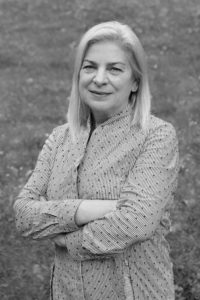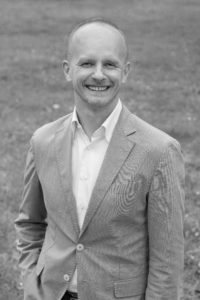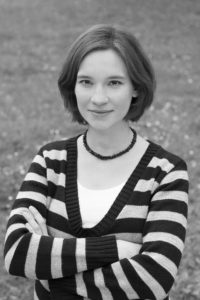Couple psychotherapy
Psychoanalytic couple psychotherapy
Psychoanalytic couple psychotherapy is a type of therapy designed for widely defined pairs, so people being together as partnerships, marriages as well as homosexual relationships. A couple and the relationship between the partners is the patient in this therapy.
The reasons why the pair seeks help can be very different. Among the most common we can find:
- Communication problems
- Repeated quarrels and conflicts without a constructive outcome
- Crisis resulting from changes in the couple’s life – the birth of a child, change or job loss, illness, relocation, children move out of the house etc.
- Conflicts in relationships with parents and in-laws
- Conflicts resulting from overloaded roles in life – work, childcare, care of parents suffering from illness
- Verbal and physical aggression
- Lack of emotional closeness and a sense of remoteness, living separately
- Lack of intimacy and sex
- Unfaithfulness.
The aim of psychoanalytic couple psychotherapy is to help partners in listening to each other and better understanding, in recognising of unconscious motives for entering into the relationship and maintaining it, in bringing awareness of the emotional mechanisms and patterns which are present in their relationship as well as in modifying these mechanisms. Therapy involves talking both about the current, often seemingly trivial matters and conflicts, together with previous experiences and history of each of the partners. This stems from the belief that these areas are combined and that within adult relationships you can find traces of the initial relationships, which sometimes block both shared and individual development. During therapy sessions the partners talk about what they find difficult in their relationship and in the partner, about their feelings, desires, hopes, fantasies and expectations. The therapist creates a framework for a casual conversation on the sometimes very painful and intimate subjects, plus shares the thoughts in the form of interpretation.
Psychoanalytic therapy is usually a long-lasting process, usually from one to several years. Its important element is stable framework to ensure a sense of security and creating a space for free and open discussions. The frequency of sessions is once a week, always at the same time and place. The duration of a session is 50 or 60 minutes. Payments for the session is an important element of the frame, also the fee and form of payment is agreed with the therapist during the consultation. All the sessions are paid except for those canceled by the therapist and occasions during holidays or therapist’s vacation.
Psychoanalytic psychotherapy
Psychoanalytic psychotherapy is rooted in psychoanalysis. In the the area of treatment the most important attribute is the relationship between the therapist and the patient. Such a relationship is considered as a field where patient’s unconscious conflicts coming from the past play out „here and now” a sighnificant role. The therapist can remarkably change the emotional experience of a patient, person’s sense of being understood and accepted, also help a person in understanding oneself and others. This is a method suitable for a wide spectrum of patients – aiming in the development and improvement of quality of life, solving the mental health problems as well as ameliorating the relationship. Such an approach is applicable to adults, adolescents and children, couples, families and groups. It is a long process, requires a systematic and proper frequency of meetings. As for families and couples the sessions are usually held once a week and last 50 minutes each. In psychoanalytic treatment the patient pays for all sessions except those that fall on public holidays or those that are canceled by the therapist or during the period of therapist’s holiday. All rules concerning psychotherapy and information on how it will proceed are discussed during the initial consultations. Therapists in their work with patients are required to adhere to the Code of Ethics, which demands respect for the patient’s discretion and sets other rules.
Initial consultations
Consultation is a meeting of the therapist and a patient who is reaching out for help. The goal of such an encounter is to reach mutual understanding, to clarify to the patient what the therapy is about, to name complicated feelings and motivations related to seeking assistance. While working with a couple the therapist leads a meeting in the way that each one in the couple could find a space to express own perspective of the problem and could be heard by the other party. The therapist tries to define the problem of the couple, then hearing the expectations of each person attempts to explore possible options that would be adequate to the couple’s expectations. If the couple / family decides to undertake the psychotherapy, the consultation supplies the time to discuss its conditions: frequency, timing, fee and payment rules.
A therapeutical session
A therapy session is a weekly meeting with a therapist, lasting 50 or 60 minutes. It is a time for a couple when the partners talk about what currently comes easily to mind – about their relationship, experiences, emotions, fears, fantasies and associations. Usually conversation is concernig the couple, but it can also be focused on previous experience or individual stories of partners, as well as the relationship between the couple and the therapist. Free speeches, as far as possible not subjected to internal censorship, allow partners to know their inner world and perceive the couple as a whole. Patients together with a therapist try to understand what mechanisms and patterns govern their relationship as well as how different areas of history influence their behavior and feelings to each other. Sessions may proceed differently. Sometimes conversations are very turbulent and painful, full of strong feelings of anger, despair or helplessness. Sometimes for various reasons it is difficult to speak and partners tend to remain silent. The role of the therapist is to carefully observe what happens during the session, mindfully listen to patients and share the understanding and insights in the form of interpretation. The therapist makes sure that the couple remains a center of attention, that both partners have the time and space to present their view. The therapist also protects a secure framework of therapy, which consists of a fixed frequency, place and date of the session, its duration, and the engagement of both partners.
The difference between a family and a couple therapy
The main difference between family and couple therapy is the presence of representatives of more than one generation (parents, children). The focus of family therapy is on relationships within the family and its subsystems. This form of therapy is indicated especially when the main problem is around a troubled child, difficulties in the communication between parents and children or between siblings. Although family coming to the therapy usually reports that only one family member needs help (usually a child), it is assumed that the difficulties and symptoms of one person are closely associated with processes, often unconscious, of the whole family. Consequently the whole family and their relationships is the subject of the therapy, the family becomes a patient. The course of treatment is similar to the process of couple psychotherapy. If the therapy involves younger children, the elements of play are also included (games, blocks, drawings) that allow children to express what is difficult for them to put into words.
Professional profiles
Where to find a couple psychotherapist

Hanna Bogacka
About me…
She graduated in psychology (with the specialization in clinical psychology) at Adam Mickiewicz Univeristy in Poznan. For 15 years she worked at the university, defended her PhD in the field of clinical child psychology (child psychopathology). She also accomplished two postgraduate courses in the psychodynamics (organized by the Psychoeducational Lab- Laboratorium Psychoedukacji) and the second one in the psychoanalytical approach (organized by the Studium Pyschoterapii Analitycznej – SPA).
Hanna Bogacka is a holder of the Psychoanalytical Psychotherapist Certificate issued by the Polish Psychoanalytical Psychotherapy Society (which belongs to EFPP). She is also a member of the Polish Psychological Society (PTP), the division of psychotherapy. She works with individual patients as well as couples and families. She works and consults in English.
She works with individual adult patients and with couples and families.
Currently she works in the private clinic SPERO in Poznan and Warsaw.
t: 695-595-063
www.spero.pl

Marek Gajowy PhD, MA
About me…
He graduated from the Faculty of Psychology of The University of Wroclaw with a specialization in clinical psychology. Marek Gajowy acquired his PhD – Doctorate in Medical Science in the Institute of Psychiatry and Neurology in Warsaw. He completed a four-year postgraduate course in psychotherapy, cognitive-behavioral approach, and now is in the process of psychoanalytic training conducted by the Polish Society for Psychoanalysis.
Dr Gajowy is certified psychotherapist, issued by the Polish Psychological Association and the European Association for Psychotherapy.
He works with adult individuals and couples.
Provides consultations and psychotherapy in English and French.
Dr Gajowy is currently working in a private practice called Cabinets of Psychotherapy and Diagnosis in Mokotów, Warsaw.
t: 502-319-661
e: mgajowy@gabine-ty.pl
www.gabine-ty.pl

Magdalena Namysłowska, PhD MD
About me…
I have completed studies at Medical University of Warsaw 1990-1996. From 1997-2003 I finished speciality in Adult Psychiatry. At the same time I participated and finished a 4 year course in Psychotherapy i Institute of Psychiatry and Neurology certified by Polish Psychiatric Association. I am a certified Psychotherapist.
I work with individual patients and with couples. As a psychiatrist I specialise in mood disorders, anxiety and eating disorders.
Provides consultations and psychotherapy in English and French.
I work and I am a board member at the Warsaw Day Clinic for Psychotherapy and Psychiatry, situated on Żegiestowska 22b, Sadyba Warsaw
t: 603-740- 838 or 721-434-334 (secretary)
e: magda_namyslowska@osrodekpsychoterapii.org
www.osrodekpsychoterapii.org

Sabina Grzymowicz
About me…
Sabina Grzymowicz graduated from Jagiellonian University with the Specialization in Applied Psychology and completed two postgraduate courses in psychotherapy in systemic approach and in psychoanalytic approach.
Sabina Grzymowicz is a psychotherapist, certified by Polish Psychiatric Association and psychoanalytic psychotherapist certified by Polish Society for Psychoanalytic Psychotherapy. She is also a member of both societies.
She works with individuals, with couples and families. She is also experienced in working with children and counseling parents.
Sabina Grzymowicz consults and conducts psychotherapy in Polish and English.
She is currently working in the Family Clinic in Warsaw and in private practice in Sadyba – Mokotów Warsaw ul. Klarysewska 60/26
t: 609-604-478
e: s.grzymowicz@terapia-warszawa.eu

Iwa Magryta-Wojda
About me…
Iwa Magryta-Wojda graduated from Faculty of Psychology at University of Warsaw with the Specialization: Marital and Family Therapy. She has also attended the 4-year postgraduate training in systemic psychotherapy conducted by Ośrodek Psychoterapii Systemowej in Cracow. She is a member of Polskie Towarzystwo Psychologiczne (Polish Psychological Association).
She works with individual adult patients and with couples and families.
She consults and conducts psychotherapy in Polish and English.
Iwa Magryta-Wojda works in Specjalistyczna Poradnia Rodzinna Dzielnicy Bemowo m.st. Warszawy and in private practice in Bemowo Warsaw ul. Górczewska 224
t: 507-829-438
e: iwa.magryta.wojda@gmail.com
www.spr.bemowo.waw.pl
About the group
We are a group of psychotherapists interested in working with couples in the psychoanalytic approach in accordance with the guidelines of the English Tavistock Clinic and TCCR (Tavistock Centre for Couple Relationships).
We meet on a regular basis at the seminars conducted by Stanley Ruszczynskiego and Mary Morgan – experienced pairs psychoanalysts associated with the Tavistock Clinic in London. We participate in meetings and peer supervisions, where we exchange experiences and discuss our work in the context of literature in the field of psychoanalytic couple therapy.
